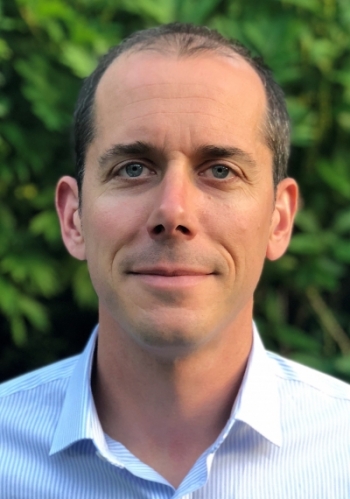UCT welcomes Professor Stephane Hess

International expert on choice modelling, Professor Stephane Hess, has joined UCT as an honorary professor. He explains how choice modelling can help address crucial issues in transport, health and education.

“I first visited UCT in 2015 to start preparing for the event,” he explains. “I also taught a course at UCT that year, which was repeated in 2018. Since then, I have forged close links with Professor Mark Zuidgeest, SANRAL Chair at the Centre for Transport Studies at UCT, and we collaborate actively in our research.
Late last year Hess officially joined UCT as an honorary professor of modelling behaviour, working between both the Health Sciences and Engineering and the Built Environment Faculties. His work will focus both on how choice modelling can be applied to problems in health and transport within a developing country context as well as finding solutions to practical issues faced when applying choice modelling in very different settings from those found in most developed world contexts.
“My link with UCT has really taught me that the choices people face in many African countries are very different from those that choice models have been traditionally applied to. While the mathematics applied is the same wherever you use the approaches, the context of application differs extensively. This raises interesting challenges but the general feeling is that we can provide valuable insights in these very different settings,” he says.
As an example of the role that history and context plays in people’s decision making, a recent research by Hess and Zuidgeest, found that that ethnicity still plays a large role in people's decision of where to live in the Cape Town. “In this instance the legacy of apartheid clearly plays a substantial role still South Africa, and this presents major challenges for modelling choices, not only as the behaviour is different but also as the constraints people face are very unique,” Hess explains.
In the case of modelling choices in transport, Hess believes South Africa provides both challenges and opportunities: “These include the informal nature of some transport provisions, the level of crowding, the added complications of safety and the issues of corruption,” he says.
Zuidgeest agrees. “Professor Hess brings a wealth of knowledge and practical experience in behavioural modelling to UCT, and by extension to Africa. We will be able to tap into the work the Centre in Leeds is doing, including student exchange and joint projects. Both Leeds and UCT are part of the Worldwide Universities Network, which might help in funding this. We are really looking forward to the next few years.”
In 2019 Hess will continue to work on a number of transport and health-related projects. “I’m looking forward to working with students and researchers at UCT on a number of projects. We will also be actively exploring work in other African countries. I think the future is bright for UCT and choice modelling in Africa,” he says.